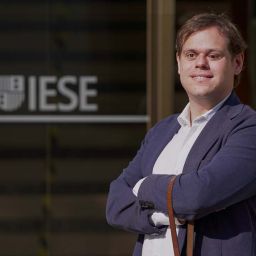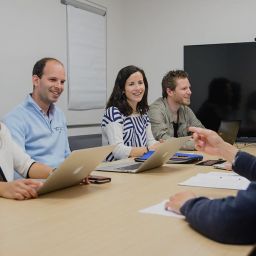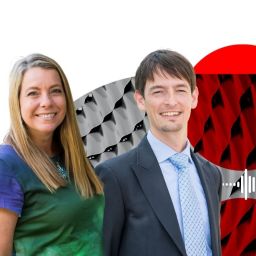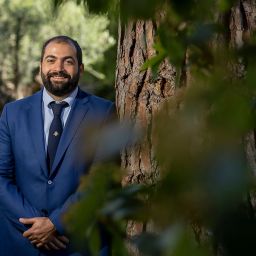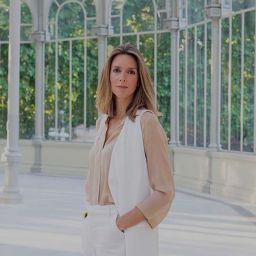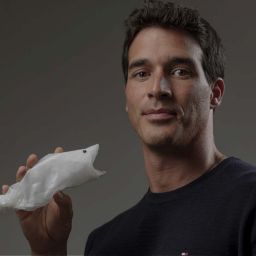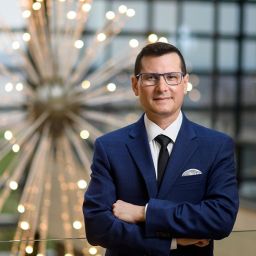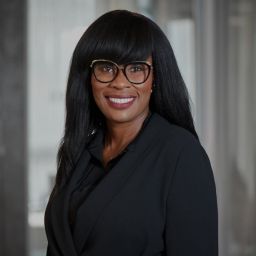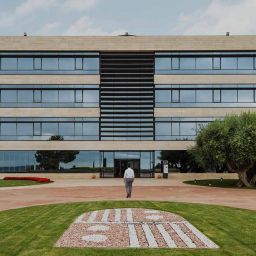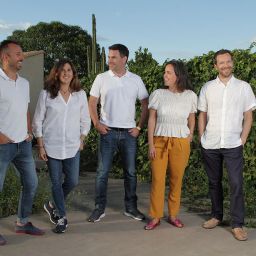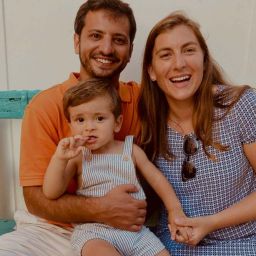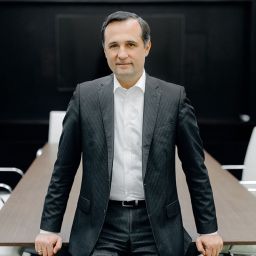Sabina Zus, Tiwatayo Lasebikan and Ankit Chawla are channeling their passion for medicine into future management roles for healthier societies around the world.
It’s the boast of many a proud parent: “My kid is a doctor.” Whether in India, Nigeria or Romania, becoming a doctor is a major achievement, representing years of hard work and regarded as not just a job but a noble vocation.
Among IESE’s MBA Class of 2024 are three doctors who have decided that part of their Hippocratic oath to serve others should include a management degree to expand their positive social impact. To help them on this path, they each received IESE scholarship funds, which are dedicated to supporting a mission-driven vision of leadership and preparing the leaders of tomorrow.
Ankit Chawla, a doctor in the Indian Air Force, is a specialist in sports medicine. Tiwatayo Lasebikan is the ninth in a long line of doctors in his family who also run three hospitals in Nigeria, two of them psychiatric hospitals, and he himself is a psychiatrist. Sabina Zus has worked in obstetrics and gynecology not only in her native Romania but also in Ireland.
None of them plans to abandon medicine. As Lasebikan points out, being a doctor is an all-consuming passion: “In fact, if you’re not consumed by it, you can’t give the best to your patients.” Indeed, they see the MBA as supporting their passion, enabling them to give back even more to the medical field after graduation.
Bridging the trust gap
Chawla admits he was inspired to become a doctor by his grandfather’s advice to pursue a career that wasn’t just about earning money. “But in my previous work,” he says, “I felt my impact was limited. In the army, I was sent to areas where I was the only doctor for 200 km. With all the will in the world, I couldn’t serve that many people. However, if I can push for a hospital to be installed there, I can be a real force for good.” In a healthcare management role, he feels he could accomplish more than in a one-to-one capacity.
Zus agrees: “As a doctor, you might see 20 to 30 patients in a day, but the choices a hospital manager makes affect everybody. During the COVID-19 pandemic, we realized how much we needed to change the way hospitals were run, including more digitization and keeping people out of the hospital if they didn’t really need to be there. We need to create new systems and come up with new solutions.”
All three doctors perceive a trust gap between management and doctors in most modern healthcare systems, as managers try to balance the books and doctors fundamentally distrust cost-cutting measures. Managers, in turn, often don’t have medical backgrounds; they may have a master’s degree in public health but no experience dealing directly with patients. When forced to step into a new role, these different pressures become glaring.
Lasebikan remembers times when he had wanted to prescribe particular brand-name medications, but upon seeing the accounts, he decided to evaluate which generic drugs were the most effective to still provide quality care while keeping costs down. Often, in their countries, there isn’t the same abundance as in Western hospitals, forcing medical professionals to be creative, which can also result in less waste.
The pandemic brought many of these tensions to the fore. While Zus worked in Ireland amid a relative abundance of PPE, her counterparts in Romania were wearing the same masks for hours or even days on end. That situation was clearly less than ideal for both doctors and patients, but Chawla tells the story from the opposite perspective. He was the COVID coordinator in his hospital and was trying to conserve and ration PPE. “There was so much mistrust because the doctors think you’re trying to cut corners, but from the management side, they simply don’t have the resources.”
Chawla believes this issue goes deeper than periodic crises about resources: “It leads to big barriers to innovation. I think that’s where the three of us come in.”
A prescription for purpose
Lasebikan is relishing the chance to learn the business side of medicine, thanks to the funding he received through IESE’s scholarship program. “There is no way I could have done this MBA otherwise.”
He plans to help build a better healthcare industry in Nigeria, with a particular interest in increasing access to mental health services. (The World Health Organization calculates there are fewer than two mental health workers for every 100,000 people in Africa.) He would also like to pursue innovation in areas such as pharma, biotech and medtech.
Thanks to her scholarship, “I’ll be able to choose a job based more on purpose than just going for the highest salary in order to pay back loans,” says Zus, who hopes to continue working in women’s health. “I’m a person who really needs my job to be a force for good. It’s hard for me to give up being a doctor – something I’m good at, something I’ve worked hard to achieve. And there are still so many ways we can improve care for women.”
Now, as the doctors dig into new subject areas like financial management and accounting, is there anything they miss? “I miss surgery,” says Zus. “I really loved it.” But thanks to MBA friends with a sense of humor, she can keep practicing, as they gifted their classmate with her very own game of Operation. “They said, ‘You’ll always be our doctor.’”
For his part, Chawla has also found the scholarship validating: “It convinced me that my idea to go into the management side was a good one. Somebody believing in your purpose – that is huge.”
For more information about IESE’s scholarship fund, or if you would like to help support more talents like those featured here, please go to Giving IESE.



